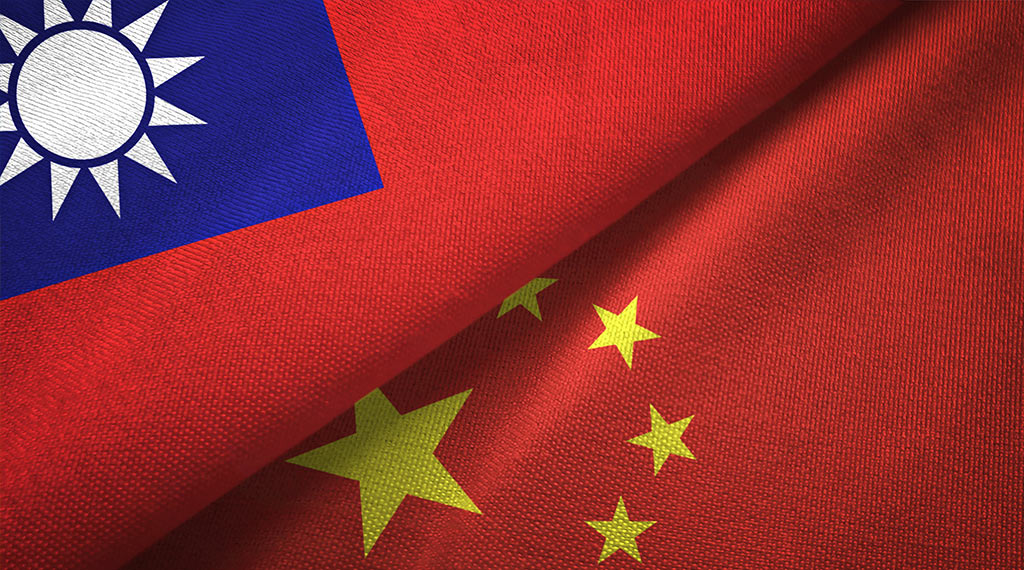Beijing’s ‘psychological warfare’ against Taiwan likely to intensify in wake of Ukraine crisis

Editor’s Note: Center Senior Fellow Grant Newsham was quoted extensively in this Epoch Times piece
The Chinese regime is paying close attention to the global ramifications of the current Ukraine crisis, and is likely to consider the West’s reactions in assessing future moves against Taiwan, said Grant Newsham, a senior research fellow at the Japan Forum for Strategic Studies.
If the Western allies fail to grapple successfully with Russian President Vladimir Putin’s aggression against Ukraine and find a way to resolve the crisis, Beijing may use that failure to ratchet up its campaign of psychological warfare against Taiwan, Newsham said.
“Psychological warfare, trying to wear down the resistance, is part of the Chinese strategy. And it does have an effect if the Taiwanese don’t think anyone is there to really back them up,” Newsham said.
Speaking to EpochTV’s “American Thought Leaders” program at the Conservative Political Action Conference in Orlando, Florida, on Feb. 26, Newsham said that Beijing has been playing a cat-and-mouse game with the much smaller and militarily weaker Taiwan for many years now, and has recently been emboldened by America’s pullout from Afghanistan, which was widely criticized as a strategic failure.
Chinese officials are “taking notes” on the current situation in Eastern Europe and waiting to see how it plays out, Newsham said. If Putin accomplishes his aims and comes away with a large chunk of Ukraine, with no real adverse consequences for his invasion, then this is sure to embolden Beijing in its own territorial ambitions.
“You have to look at the U.S. track record in recent times. And, you know, even we’re worried. So you can imagine how the Taiwanese are feeling. That’s what you’re seeing in Asia. China’s taking notes and Taiwan is watching as well,” he said.
When Russia began its invasion of Ukraine on Feb. 24, some observers speculated that Beijing might try to use the world’s fixation on that event as a cover for aggression against Taiwan, up to and including landing military forces on the island. Even before events in Ukraine, some wondered whether Chinese leader Xi Jinping might attempt to use the spectacle of the Winter Olympics as cover for a move against Taiwan, Newsham reflected.
Contrary to those predictions, Newsham does not see an immediate threat to the self-ruled island. So far, Beijing has refrained from using either event as a diversion, but that does not mean that communist officials are uninterested in the implications of the Ukraine invasion as they mull potential moves.
“My thinking is, they’re probably going to wait a while, and see how the Russian move on Ukraine works out,” Newsham said.
“Does Russia get hit with such devastating financial and economic sanctions? Does NATO actually wake up militarily? Does the Biden administration do something like reestablish oil independence or energy independence? Does it show any sign that it’s going to get its financial house in order? Does it show it’s going to fund the military the way it should?”
The Scope of Potential Aggression
Once Beijing does draw conclusions from the Ukraine crisis and other recent geopolitical events, moves are possible against Taiwan, against strategic targets in the South China Sea, or even possibly, against Japan, said Newsham.
“It’s really been clear since about 10 years ago that the Chinese threat to Japan is unmistakable. And the Japanese have kind of woken up [to the threat], but they’ve got a long way to go very quickly,” he said.
Newsham described the Japanese military as “pathologically dependent” on the U.S. military for logistical and infrastructural support, particularly since Japan’s post-World War II constitution has so severely limited Japan’s combat resources and capabilities.
Although China’s permanent representative to the United Nations, Zhang Jun, has called on all parties to the Ukraine conflict to exercise restraint, Newsham expressed skepticism about Beijing’s interest in resolving the crisis, and said that he sees Russia and China as having entered a “marriage of convenience.”
“They both see what each does as a way to bring the Americans down a notch, and maybe even just discombobulate the Americans so much that they can’t respond,” Newsham said.
- China’s threat to energy security requires state-level action - June 25, 2024
- National security implications of accepting unvetted migrants into the US - June 13, 2024
- China outshines US as global scramble for bases heats up - January 3, 2023
